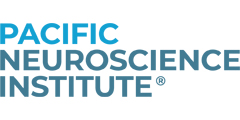There are no FDA-approved drug therapies for vestibular schwannoma (VS), the fourth most common intracranial tumor. In a study published this Wednesday in Scientific Reports, researchers from Massachusetts Eye and Ear have identified a set of genes that are consistently and abnormally expressed in this tumor as compared to control nerves. Rather than use this information to develop a new compound that can stop VS cells from growing, the researchers were interested in computationally probing the known genetic effects of drugs already approved for human use.
"Repurposing a drug that is already FDA-approved is appealing because these drugs have already completed rigorous safety testing and thus can potentially move more quickly into a clinical trial for a new indication," explained study leader Konstantina Stankovic, M.D., Ph.D., FACS of Massachusetts Eye and Ear and Harvard Medical School.
In order to identify existing drugs most likely to provide benefits when repurposed for VS, Stankovic's team used an algorithm to screen the abnormal gene expression signature associated with this tumor against the known genetic effects of 1,155 FDA-approved drugs. The most appealing candidate compound that emerged from this analysis, mifepristone, is a drug currently approved for use in chemical abortion. Unlike many small molecule drugs, mifepristone is already known to cross the blood-brain barrier, and case reports in the existing literature have documented benefits for patients with similar tumors. Stankovic's research team applied mifepristone to vestibular schwannoma cells grown from donated patient tumor samples and observed an 80% reduction in cellular proliferation. "We are excited to continue investigating the way mifepristone affects these tumors and hope to begin a closely supervised patient trial soon," said Jessica Sagers, PhD student at Harvard Medical School and first author of this study.
For more information:
https://www.sciencedaily.com/releases/2018/04/180403115950.htm



































